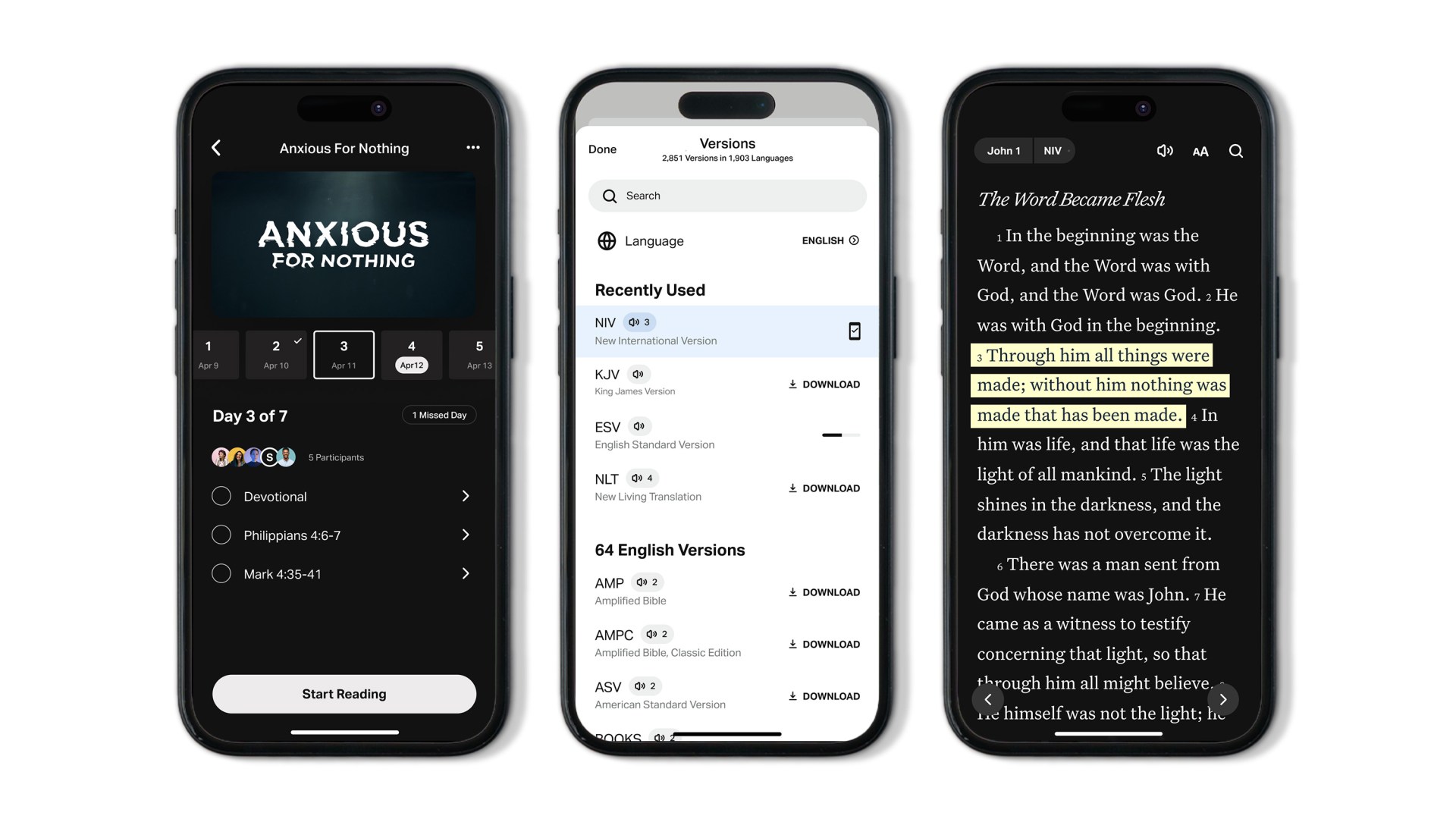“Around two years ago, I started reading the Bible,” 20-year-old Hailey Gillman told her 200,000 TikTok followers in March. “I proclaimed that I was a Christian on my social media. A lot of people knew that I was a Christian and I loved Jesus, but … I actually never really opened my Bible.”
Gillman is not alone. According to the American Bible Society’s State of the Bible: USA 2025 study, Gen Zers spend less time in God’s Word than older generations do, with just 36 percent of the generation reporting Bible use at least a few times a year. At the same time, the reading habits of these 18-to-29-year-olds have remained mostly steady over the past three years, and more young men are reporting engagement with Scripture.
Like other recent analysis, State of the Bible portrays a nebulous spiritual landscape. Americans between the ages of 18 and 29 are the least Christian generation in the US, according to the most recent Pew Research Center data.
But other research and anecdotal evidence indicate an ever-so-slightly-shifting tide: young Christians who are desiring deeper and more authentic spiritual connections, returning to church or visiting for the first time, and experiencing revival movements in the US, Europe, and beyond.
Boluwatife Familoni, a 22-year-old from Ibadan, Nigeria, reads the Bible from 5 a.m. to 6 a.m. every day. His favorite story is the one about David and Goliath, reminding him that “you might be small, but you are mighty in the eyes of God.”
“Every time I read the Bible, it’s like God is … showing me something new,” he said.
His 27-year-old brother Oluwaloni Familoni agrees. In his daily Bible time, he tries to read passages from the Old and New Testament concurrently. He loves the Old Testament because it’s “entertaining” and has “lots of drama,” although he wishes he was more consistent in writing down what he’s learning from Scripture.
State of the Bible also reported that Scripture reading overall is up 29 percent among American millennials, now aging into their 30s and early 40s. Perhaps surprisingly, their Bible reading habits still lean print-heavy, though they also use digital tools.
Meanwhile, Gen Z Christians are the least likely to read a printed Bible. Of those who consume Scripture digitally, 59 percent use a Bible app, a third prefer podcasts, and nearly a quarter learn on TikTok.
Globally, YouVersion has the most popular Bible app, which includes the Bible App, the Bible App Lite for internet-restricted places, and the Bible App for Kids. It anticipates reaching 1 billion downloads—a number that represents approximately one-eighth of the world’s population—by November 17.
YouVersion doesn’t collect demographic data from its users, so its researchers don’t know how many young people are using the app. But Bible App founder and CEO Bobby Gruenewald said momentum among Gen Z readers is reflected in search trends.
“There’s clearly a hunger among Gen Z for truth they can anchor their lives on. In a world where AI and digital noise make it increasingly difficult to know what’s real, the Bible stands alone as a source of truth that’s been carefully passed down from generation to generation for centuries,” Gruenewald said. “Gen Z is recognizing that. They’re turning to something with substance, something they know they can trust.”
Nigeria boasts the largest expansion (35%) of daily Bible reading on the app. Esther Oni, a 27-year-old Nigerian who currently lives in Milwaukee, said its studies have drawn her closer to God, leading her to read Scripture and pray more.
“When I haven’t read the Bible in a while, I have this crippling level of anxiety,” she said. “I’m just worried about every single thing. [But] no matter what part of Scripture it is I’m reading, there’s just that peace.”
In Latin America, the YouVersion app experienced the most significant growth in downloads in Peru (17%) this year, outperforming Chile (13%) and Brazil (6%). The USA saw a 13 percent increase in downloads.
There’s been a significant shift in how Peruvian Gen Zers read the Bible, said Robin Rodriguez, general secretary of the Asociación de Grupos Evangélicos Universitarios del Perú (Association of Evangelical University Groups of Peru, AGEUP). Previously, many young people struggled to understand minor prophets like Obadiah, Nahum, and Zephaniah. But recent Gen Z–led protests in the country demanding an end to widespread corruption and crime prompted him to introduce Bible studies about these minor prophets to university students, focused on how the prophets served as “seekers of justice” in their contexts.
“Suddenly, books that were previously ignored took on profound relevance,” Rodriguez said, “demonstrating that when the Bible engages with the specific contexts and concerns of the generation, it becomes a powerful motivator for reading and action.”
In general, stagnant Bible reading may reflect a discipleship issue rather than a lack of interest. Gen Zers might not have people who can teach them how to read the Bible, or they may not understand how God speaks to them through his Word just as he does through prayer. When that guidance is made available, young people take advantage of it. Keithen Schwahn, a young-adult pastor at Church of the City in New York City, told CT earlier this year that his congregation is seeing dramatic growth in its teen discipleship group, and its college students are starting successful prayer groups and Bible studies on their campuses.
“In the past, we have very, very much focused on the Bible—its inspiration, its holiness—but maybe at times have done that at the cost of helping a generation understand how it actually applies to their lives, how it is relevant and is helpful,” former youth pastor Shane Sanchez told Barna in 2023. “We’ve sought to make the Bible, and faith at large, understandable for the next generation, when really what they need is to understand that it is to be experienced, not just understood.”
Bible sales have been steadily rising over the past decade, especially since 2020. In 2024 alone, they were up 22 percent, reaching a record 17 million units sold. (Book sales overall rose less than 1 percent that year.) The KJV giant-print Bible, designed for older readers, was the best-selling Bible of 2024. But the NIV Adventure Bible for kids and CSB She Reads Truth Bibles (popular with young women) made up 3 of the top 10.
The State of the Bible survey postulated that the popular television show The Chosen could be influencing Bible sales, as their rise has paralleled the show’s global success.
And Charlie Kirk’s assassination in September also caused a significant surge, reported The Wall Street Journal. Social media users posted anecdotes of first-time Bible purchases and church attendance after the conservative activist’s death.
No matter the cause, more Scripture reading is only good news.
“I love that God speaks to me through the Bible and speaks about my situation,” Oluwaloni said. “Anything I’m going through, the answer is in the Bible.”
“When you’re not feeding your soul with the truth, you’re not going to see change,” TikTok influencer Hailey Gillman said. “I promise you, reading the Bible will change you.”
Kara Bettis Carvalho is a features editor at Christianity Today. Isabel Ong contributed to this report.




















